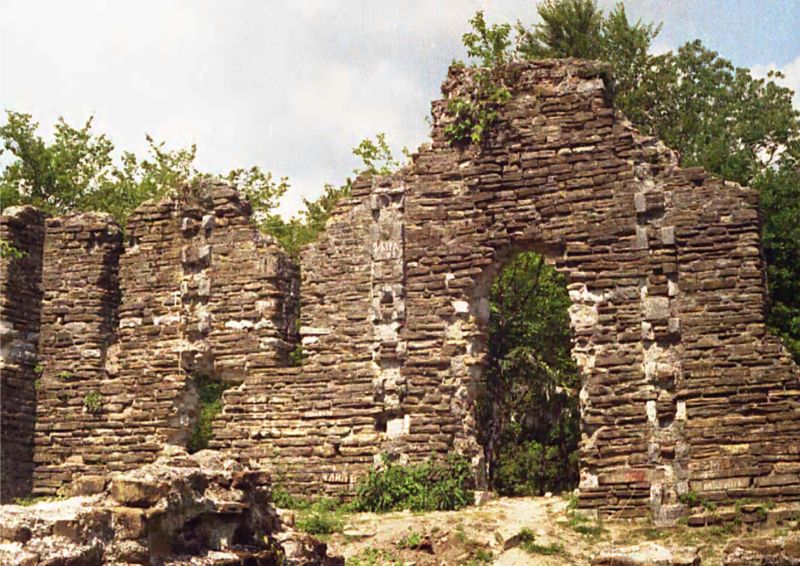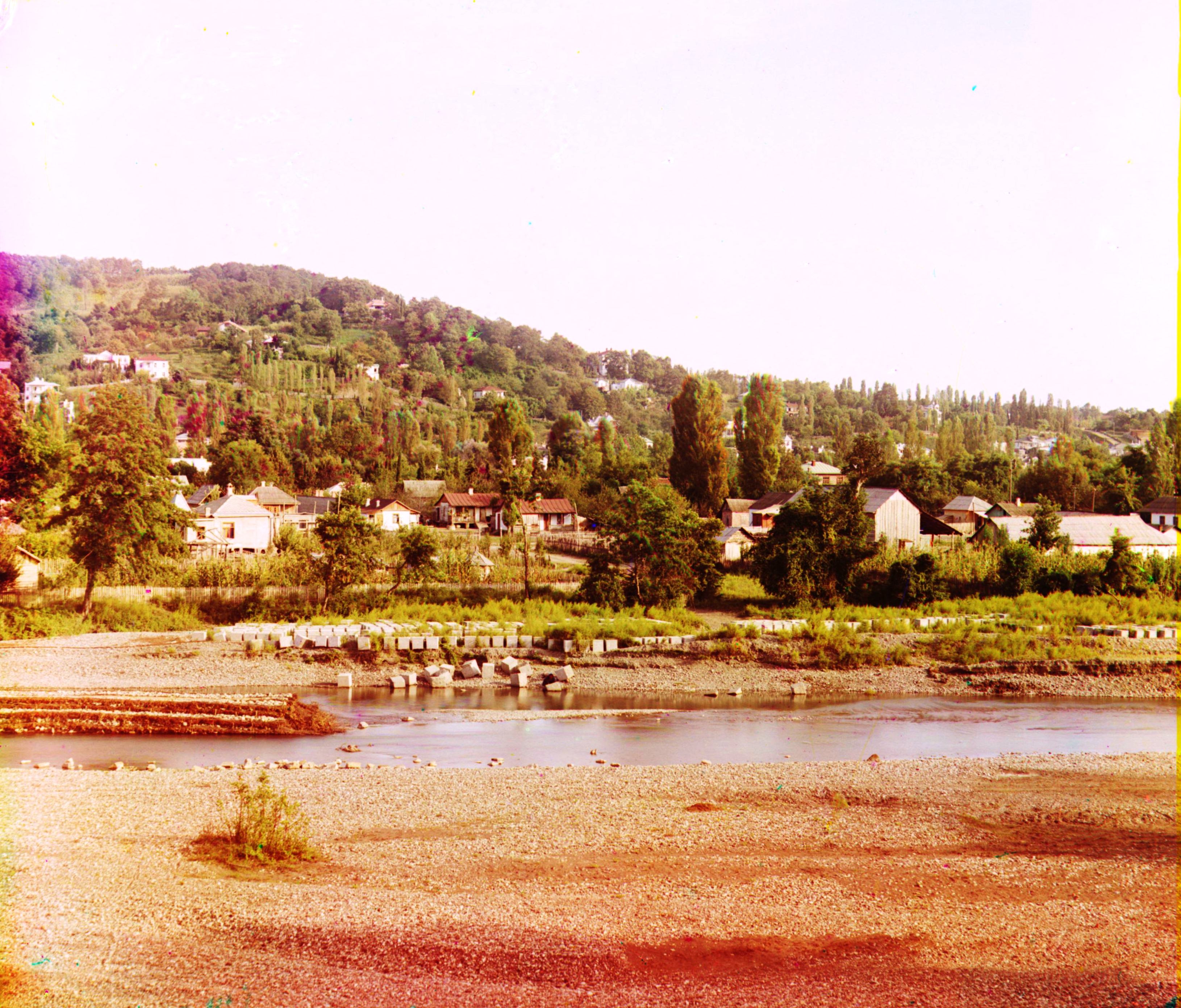|
Ahchypsy
The Ahchipsou were a Sadz (Abkhaz people, Abkhaz-Abazin) tribe, that lived on Caucasus Major, near the modern border of Krasnodar Krai and Abkhazia. They lived at the upper Mzymta, and its inflow Achipse, modern Krasnaya Polyana, Adlersky City District, Sochi, Russia. The Ahchipsou were dominated by the clan of Kazılbeg Azaguyipa. The Ahchipsou were conquered in May, 1864, showing the last resistance during the Russian-Circassian War. After the war they resettled into the Ottoman Empire (see Muhajir (Caucasus), Muhajirism). References [...More Info...] [...Related Items...] OR: [Wikipedia] [Google] [Baidu] |
Sadz
The Sadz or Asadzwa, also Jigets, are a subethnic group of the Abkhazians. They are sometimes purported to have originated from the Sanigoi tribe mentioned by the Classic authors. In the 6th century, they formed a tribal principality, which later commingled with the Abasgoi, Apsilae and Missimianoi into the Kingdom of Abkhazia. Until 1864 Sadz lived at the Black Sea coast north to Gagra until the Khosta River (Khamysh River). They formed the Sadzyn area, which consisted of the possessions of Kamysh, Arydba, Amarshan and Gechba clans, under the hegemony of Tsanba clan. The Ubykh princes Oblagua, Chizmaa and Dziash also originated from the Sadz. Some think that in the 12-14th centuries a part of the Sadz have been forced to resettle to the northern mountainside of Caucasus Major under the Ubykh pressure. They formed there Abazin people. This is only one of the theories explaining the migration from Abkhazia of the ancestors of what is now the Abaza people. After ... [...More Info...] [...Related Items...] OR: [Wikipedia] [Google] [Baidu] |
History Of Sochi
The area of the Russian city of Sochi was populated more than 100,000 years by ancient people of Asia Minor migrating through Colchis (olden Georgia). Ancient Greeks sailed to the region via the Black Sea in the 5th–6th centuries BC and encountered the Maeotae, Sindi, Cercetae, Zygii and other local tribes. They were the ancestors of the Abkhaz, Ubykh and Adyghe people who lived here until 1864; many toponyms in Sochi, including the city itself, originate from their languages. The first Russian outpost was set up in central Sochi in 1838 as a part of the Russian expansion along the Black Sea coast. The local resistance to this process became a part of the Russo-Circassian War which ended in a Russian victory and the genocide of the local population. The Russian settlement built in the area was named Sochi in 1896 and received the status of a city (town) in 1917. The first tea plantations were established there in 1901–1905 and resulted in the production of the most prominent ... [...More Info...] [...Related Items...] OR: [Wikipedia] [Google] [Baidu] |
Muhajir (Caucasus)
The Circassian genocide, or Tsitsekun, was the systematic mass killing, ethnic cleansing, and forced displacement of between 95% and 97% of the Circassian people during the final stages of the Russian invasion of Circassia in the 19th century. It resulted in the deaths of between 1,000,000 and 1.5 million and the destruction of Circassia, which was then annexed by the Russian Empire. Those planned for extermination were mainly the Circassians, who are predominantly Muslims, but other ethnic groups in the Caucasus were also affected, as part of the Caucasian War. The Imperial Russian Army also impaled their victims and tore open the bellies of pregnant women to intimidate the Circassians and devastate their morale. Many Russian generals, such as Grigory Zass, described the Circassians as " subhuman filth" and a " lowly race" to justify and glorify their wholesale slaughter and their use as human test subjects in unethical scientific experiments. Russian soldiers were also permi ... [...More Info...] [...Related Items...] OR: [Wikipedia] [Google] [Baidu] |
Ottoman Empire
The Ottoman Empire (), also called the Turkish Empire, was an empire, imperial realm that controlled much of Southeast Europe, West Asia, and North Africa from the 14th to early 20th centuries; it also controlled parts of southeastern Central Europe, between the early 16th and early 18th centuries. The empire emerged from a Anatolian beyliks, ''beylik'', or principality, founded in northwestern Anatolia in by the Turkoman (ethnonym), Turkoman tribal leader Osman I. His successors Ottoman wars in Europe, conquered much of Anatolia and expanded into the Balkans by the mid-14th century, transforming their petty kingdom into a transcontinental empire. The Ottomans ended the Byzantine Empire with the Fall of Constantinople, conquest of Constantinople in 1453 by Mehmed II. With its capital at History of Istanbul#Ottoman Empire, Constantinople (modern-day Istanbul) and control over a significant portion of the Mediterranean Basin, the Ottoman Empire was at the centre of interacti ... [...More Info...] [...Related Items...] OR: [Wikipedia] [Google] [Baidu] |
Russian-Circassian War
The Russo-Circassian War, also known as the Russian invasion of Circassia, was the 101-year-long invasion of Circassia by the Russian Empire. The conflict started in 1763 ( O.S.) with Russia assuming authority in Circassia, followed by Circassian refusal, and ended with the last army of Circassia defeated on 21 May 1864 (O.S.). It was exhausting and casualty-heavy for both sides. The Russo-Circassian War was the longest war both Russia and Circassia have ever fought and the longest war in the Caucasus region.. During and after the war, the Russian Empire employed a genocidal strategy of systematically massacring civilians, resulting in the Circassian genocide,L.V.Burykina. ''Pereselenskoye dvizhenie na severo-zapagni Kavakaz''. Reference in King. where up to 3,500,000 Circassians were either killed or forcibly expelled to the Ottoman Empire (especially to modern-day Turkey; see Circassians in Turkey), creating the Circassian diaspora. While the war was initially an isolate ... [...More Info...] [...Related Items...] OR: [Wikipedia] [Google] [Baidu] |
Russia
Russia, or the Russian Federation, is a country spanning Eastern Europe and North Asia. It is the list of countries and dependencies by area, largest country in the world, and extends across Time in Russia, eleven time zones, sharing Borders of Russia, land borders with fourteen countries. Russia is the List of European countries by population, most populous country in Europe and the List of countries and dependencies by population, ninth-most populous country in the world. It is a Urbanization by sovereign state, highly urbanised country, with sixteen of its urban areas having more than 1 million inhabitants. Moscow, the List of metropolitan areas in Europe, most populous metropolitan area in Europe, is the capital and List of cities and towns in Russia by population, largest city of Russia, while Saint Petersburg is its second-largest city and Society and culture in Saint Petersburg, cultural centre. Human settlement on the territory of modern Russia dates back to the ... [...More Info...] [...Related Items...] OR: [Wikipedia] [Google] [Baidu] |
Sochi
Sochi ( rus, Сочи, p=ˈsotɕɪ, a=Ru-Сочи.ogg, from – ''seaside'') is the largest Resort town, resort city in Russia. The city is situated on the Sochi (river), Sochi River, along the Black Sea in the North Caucasus of Southern Russia, with a population of 466,078 residents, and up to 600,000 residents in the urban area. The city covers an area of , while the Greater Sochi Area covers over . Sochi stretches across , and is the longest city in Europe, the fifth-largest city in the Southern Federal District, the second-largest city in Krasnodar Krai, and the Black Sea#Urban areas, sixth-largest city on the Black Sea. Sochi hosted the 2014 Winter Olympics, XXII Olympic Winter Games and 2014 Winter Paralympics, XI Paralympic Winter Games in 2014. It hosted the alpine and Nordic Olympic events at the nearby ski resort of Rosa Khutor Alpine Resort, Rosa Khutor in Krasnaya Polyana, Sochi, Krasnodar Krai, Krasnaya Polyana. It also hosted the Formula 1 Russian Grand Pri ... [...More Info...] [...Related Items...] OR: [Wikipedia] [Google] [Baidu] |
Krasnaya Polyana
Krasnaya Polyana () meaning "Red Meadow" is the name of several inhabited localities in Russia: Modern localities Amur Oblast As of 2012, one rural locality in Amur Oblast bears this name: * Krasnaya Polyana, Amur Oblast, a '' selo'' in Tomsky Rural Settlement of Seryshevsky District Republic of Bashkortostan As of 2012, one rural locality in the Republic of Bashkortostan bears this name: * Krasnaya Polyana, Republic of Bashkortostan, a village in Mikyashevsky Selsoviet of Davlekanovsky District Belgorod Oblast As of 2012, three rural localities in Belgorod Oblast bear this name: * Krasnaya Polyana, Chernyansky District, Belgorod Oblast, a settlement in Chernyansky District * Krasnaya Polyana, Ivnyansky District, Belgorod Oblast, a ''khutor'' in Ivnyansky District * Krasnaya Polyana, Shebekinsky District, Belgorod Oblast, a '' selo'' in Shebekinsky District Bryansk Oblast As of 2012, two rural localities in Bryansk Oblast bear this name: * Krasnaya Polyana, Karachevsky Dis ... [...More Info...] [...Related Items...] OR: [Wikipedia] [Google] [Baidu] |
Abkhaz People
The Abkhazians or Abkhazes are a Northwest Caucasian ethnic group, mainly living in Abkhazia, a disputed region on the northeastern coast of the Black Sea. A large Abkhaz diaspora population resides in Turkey, the origins of which lie in the Caucasian War in the late 19th century. Many Abkhaz also live in other parts of the former Soviet Union, particularly in Russia and Ukraine. Ethnology The Abkhaz language belongs to the isolate Northwest Caucasian language family, also known as Abkhaz–Adyghe or North Pontic family, which groups the dialectic continuum spoken by the Abaza–Abkhaz (Abazgi) and Adyghe ("Circassians" in English). Abkhazians are closely ethnically related to Circassians. Classical sources speak of several tribes dwelling in the region, but their exact identity and location remain controversial due to Abkhaz–Georgian historiographical conflict. Subgroups There are also three subgroups of the Abkhaz people. The Bzyb (Бзыԥ, Bzyph) reside in the Bz ... [...More Info...] [...Related Items...] OR: [Wikipedia] [Google] [Baidu] |
Mzymta
The Mzymta (; Abkhaz: Мӡы́мҭа; , ''Mezmytha'') is a river in Northwestern Caucasus, flowing through Mostovsky District and the city of Sochi ( Adlersky City District) of Krasnodar Krai, Russia. The Mzymta is the largest river in Russia emptying into the Black Sea. It is long with a watershed of . All the venues of the 2014 Winter Olympics were in the Mzymta Valley. Geography The source of the Mzymta is in Lake Verkhny Kardyvach in Western Caucasus, at a height of . The upper course of the river is located within the Caucasus Zapovednik. The Mzymta flows in a narrow valley through Lake Kardyvach and forms several waterfalls, the biggest of which is Izumrudny (Emerald), . Downstream of Lake Kardyvach, the river flows west and enters Sochi National Park. The banks are covered with beech forests and chestnuts, and also ancient Ubykh gardens with wild pear, walnut and chestnut. In Esto-Sadok and Krasnaya Polyana the Mzymta flows through the first urban area, where so ... [...More Info...] [...Related Items...] OR: [Wikipedia] [Google] [Baidu] |





